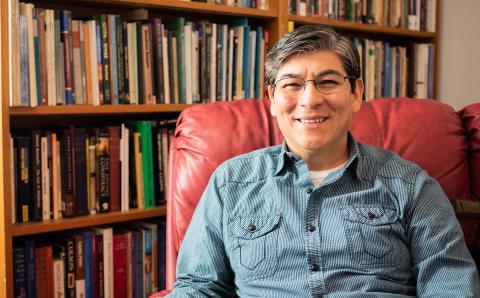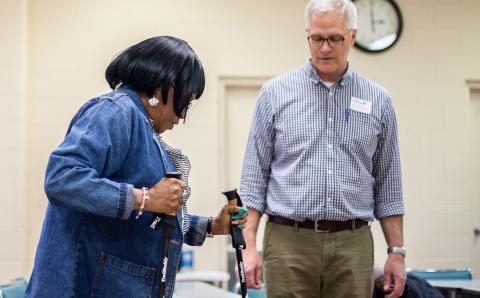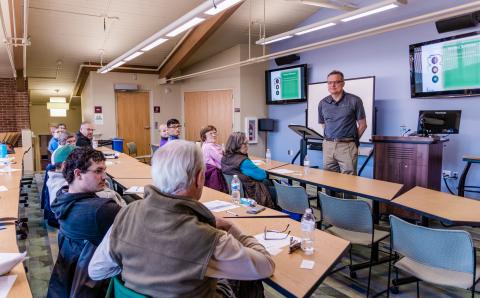Sometimes it’s the slow train that eludes detection. One such slow train is the long, slow, profound change in how the Christian Reformed Church recruits, trains, and credentials ministry leaders. Nothing is more likely to change the CRC in the future than the current changes in how the CRC raises up pastoral leaders.
Synod 2019, the general assembly of the CRC, strengthened two trends that have and will have profound effect in the denomination, and called attention to a third. The first of these trends is the development of a new ministry office, commissioned pastor; the second is opening the door to ministers ordained in other churches; and the third is an increase in candidates for the ministry trained in seminaries other than Calvin Theological Seminary, the denominational seminary. These trends occasioned little comment on the floor of synod, but they are part of a larger story. Or rather, stories.
Although the stories of these trends are separate, they are connected like the cars of the train.
The CRC of the past looked almost exclusively to CTS for pastoral leadership. The pastors so trained were given ample doses of Reformed theology along with Greek and Hebrew. (Greek was often seen as the great separator of those who qualified to be pastors and those who weren’t.)
The churches to which these pastors were called emphasized preaching, teaching (especially catechism), and pastoral care. Few churches had large staffs, elaborate programs, or much else that demanded administrative oversight. The training fit the job.
Churches have changed, as have the places from which they draw their leadership. Over the past decades, avenues to leadership have been opened for pastoral leaders who are not seminary-trained, for pastors who were trained and ordained in other denominations, and for pastoral candidates who were trained in seminaries other than CTS. Together, these leaders are changing the church.
Where is all this going?
With people entering pastoral leadership through the office of commissioned pastor, coming from other denominations, and trained in seminaries other than CTS, how has and will the CRC change?
It will, perhaps has already, break up the old boys’ club. When everyone was trained in the same way and at the same place, they knew each other. There was an easy familiarity. That will go away.
Related to this, the denomination will have to work harder to establish its theological and ministry identity. The opinions, and even assumptions, of pastors trained in different ways and different places are likely to be more divergent than they have in the past. The denomination will have to work harder at the classis and synod level to reach agreement in matters of doctrine and approaches to ministry. The work might be harder, but the payoff also could be greater.
Finally, and again related to what has already been said, the denomination will have to be clearer about what is expected of its leaders in faith and life. Agreement will have to be reached on a simple and straightforward set of standards that can be applied to pastors in many different settings and coming from many different backgrounds.
These changes will work themselves out in the life of the denomination over not just years but decades. They are the sort of changes that accumulate. One scarcely notices the change at first. The Church Order and other regulations pertaining to church leadership that were approved by Synod 2019 passed with no discussion. But the changes made are likely to change the face of church leadership more than anything else done at Synod 2019.
Synod 2019 is meeting at Calvin College in Grand Rapids, Mich., from June 14-20. For continuous coverage from our award-winning news team, download the Banner app on your mobile device or follow The Banner Magazine on Facebook or @crcbanner on Twitter. You can find more tweeting by following hashtag #crcsynod. News stories will be posted on The Banner’s dedicated Synod web page several times daily. Unless noted otherwise, all photographs are by Karen Huttenga.
About the Author
Clayton Libolt was the long time pastor of River Terrace Church in East Lansing, Mich. Since his retirement, he has served in a variety of interim positions. He is presently serving as the interim senior pastor of Sonlight Community CRC in Lynden, Wash.









